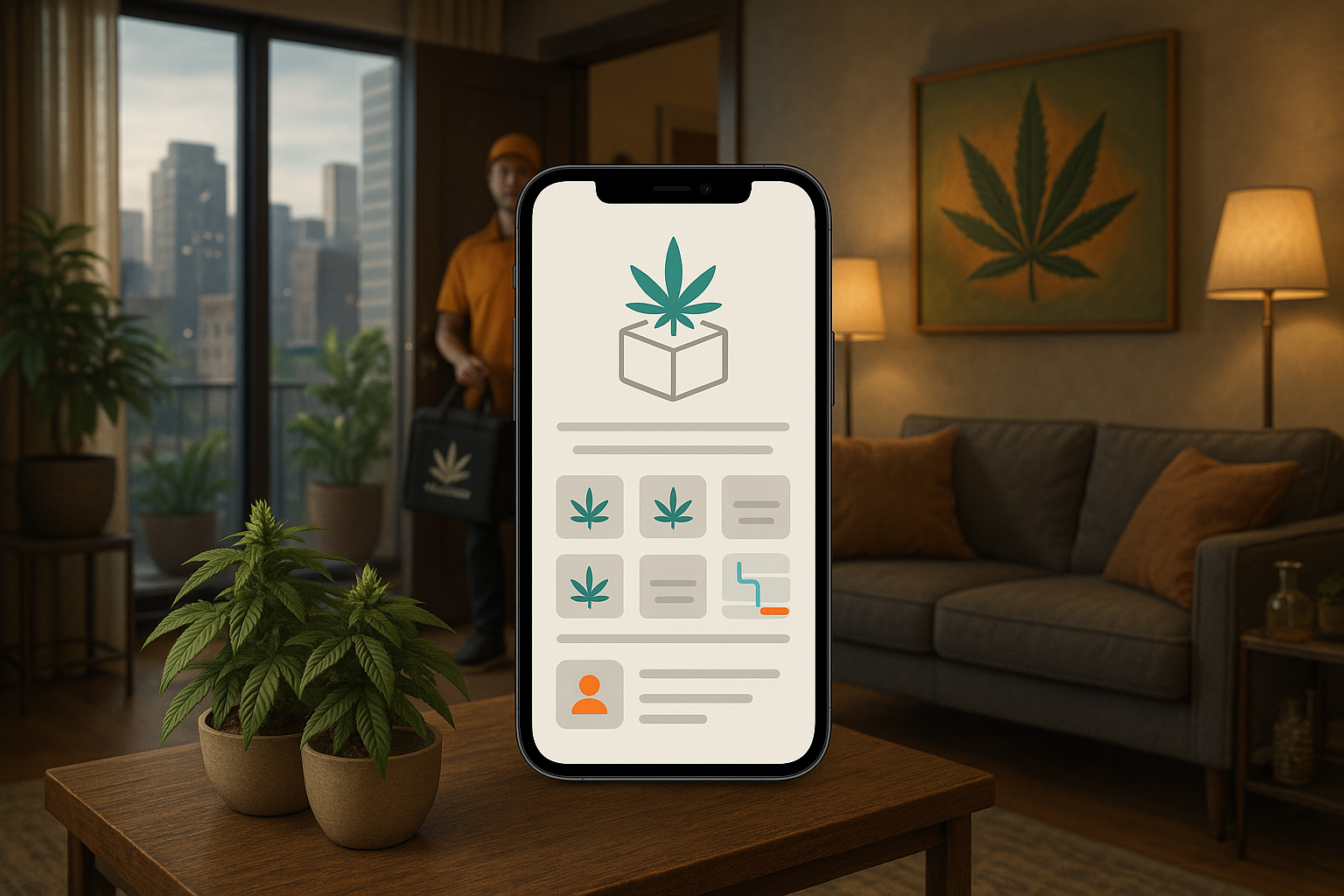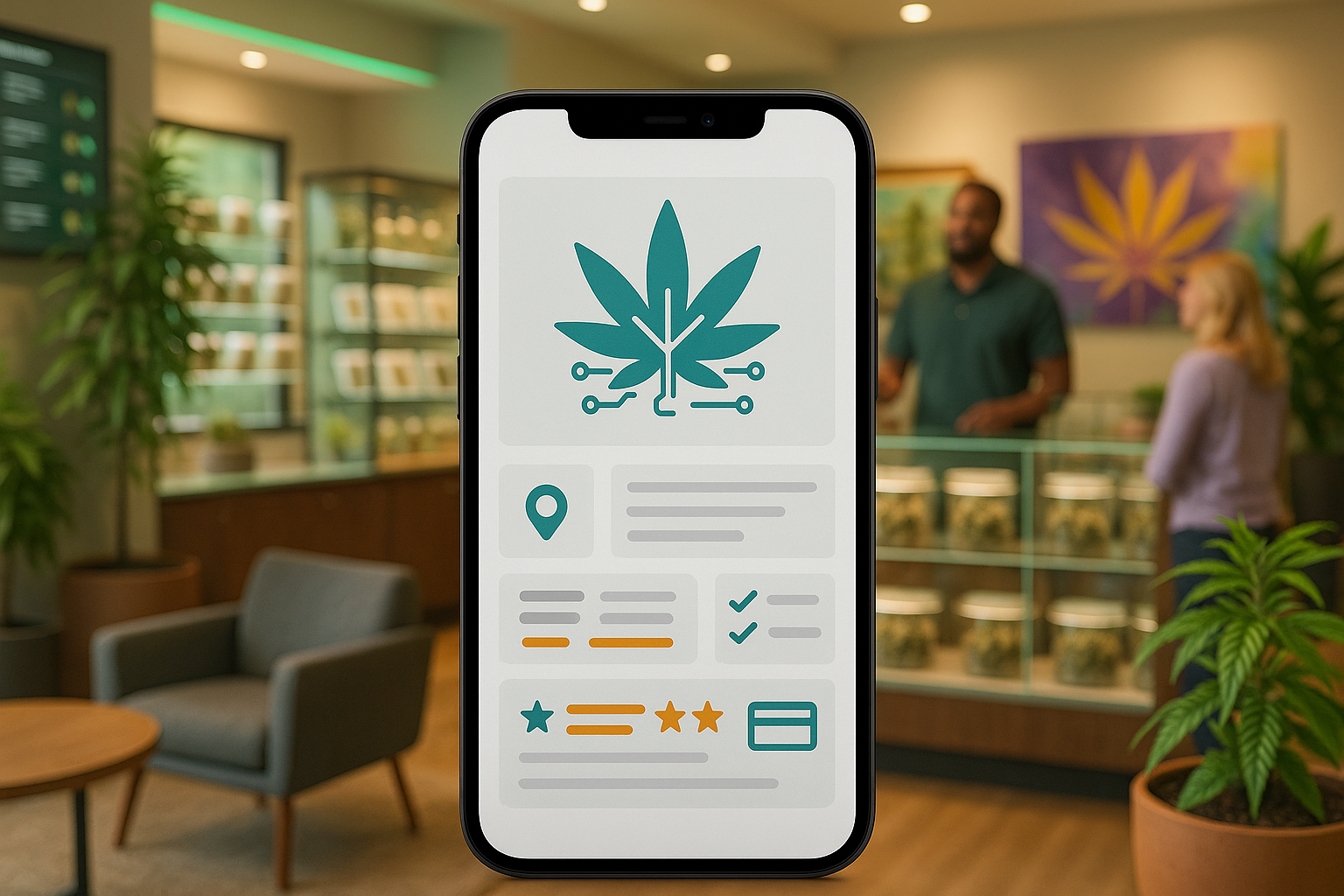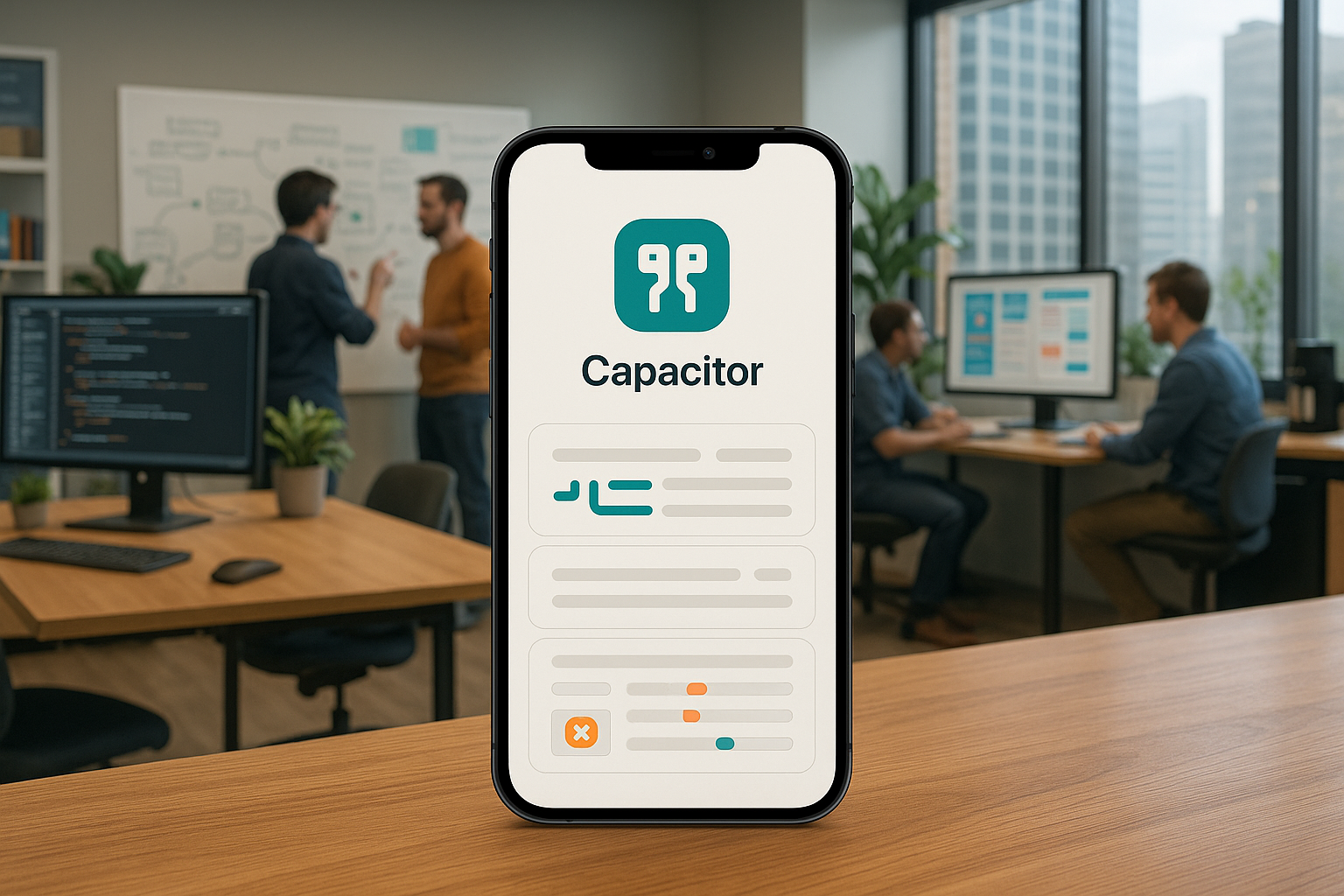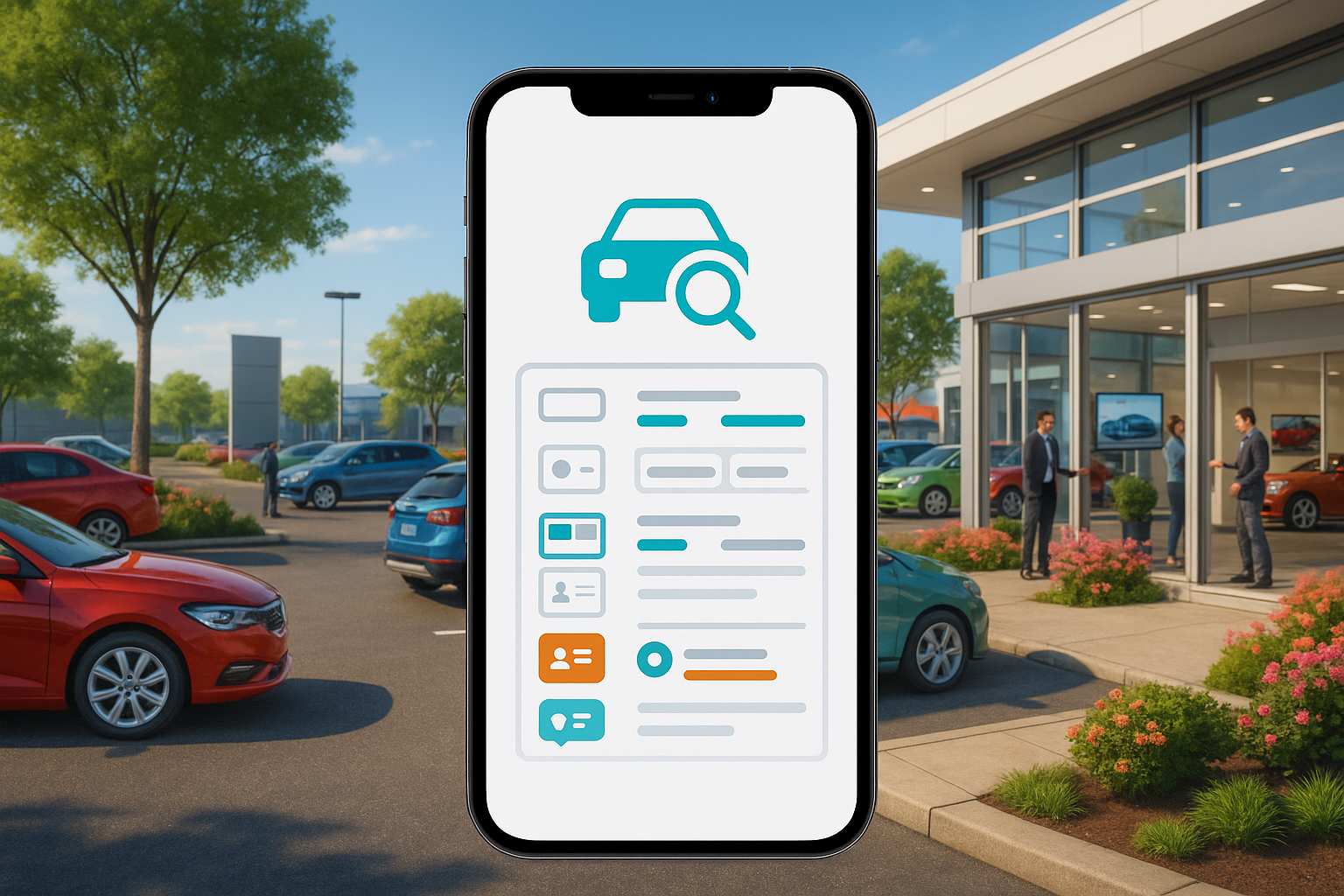The Green Rush Goes Digital: Navigating Cannabis Delivery App Development
The cannabis industry is expanding at an unprecedented rate. With recreational use now legal in 23 states and medical use permitted in 38, the market for accessible cannabis products has never been larger. This has created a significant opportunity for entrepreneurs to enter the space with cannabis delivery apps, bridging the gap between licensed dispensaries and consumers. However, capitalizing on this opportunity is far from simple. Developing a cannabis delivery app is a venture fraught with unique and formidable challenges, from navigating a labyrinth of conflicting regulations to solving complex technical hurdles like payment processing and multi-platform builds.
The core problem is that while the market is ripe, the path to launching a successful app is obscured by legal gray areas and significant development costs. Marijuana remains illegal under federal law, creating a high-stakes environment where compliance is not just a best practice, but a requirement for survival. Building an app that is secure, user-friendly, and, above all, legally compliant requires deep expertise that most in-house teams lack.
As a top US AI-powered app development firm with 20 years of experience and over 120 successful projects, we at MetaCTO have seen firsthand how complex ideas can be transformed into market-ready apps. We understand these challenges intimately and specialize in guiding our partners through every step of the process, from concept to launch and beyond. This article serves as a comprehensive guide to cannabis delivery app development. We will explore what these apps are, the difficulties of building them, potential business models, cost estimates, and the top companies that can help you build your platform. By the end, you will understand the landscape and see how partnering with an expert firm like ours is the key to launching your app the right way, from day one.
What is a Cannabis Delivery App?
At its core, a cannabis delivery app is a sophisticated digital platform that connects consumers with local, licensed cannabis dispensaries to facilitate the online ordering and delivery of marijuana products. It is not merely a simple e-commerce storefront but a complex ecosystem designed to operate within strict regulatory frameworks.
A complete cannabis delivery solution requires building more than just one mobile application. A successful platform typically consists of three integrated components:
- The Customer-Facing App: This is the application that users download to their smartphones. It provides the primary interface for them to explore products, learn about different strains, and place orders. Key features include robust user authentication and ID verification to ensure legal age and, where applicable, possession of a medical marijuana card. It showcases a curated selection of cannabis products from partnered local dispensaries, much like popular apps such as Eaze.
- The Courier App: This separate application is built for the drivers responsible for delivering the products. It provides couriers with essential tools for managing on-demand delivery jobs, viewing optimized routes, and communicating updates to both the dispensary and the customer. This app is critical for logistical efficiency and ensuring a seamless delivery experience.
- The Web Admin Panel: This powerful web-based dashboard is the central nervous system of the entire operation. From this panel, administrators can manage all aspects of the business. This includes keeping the app’s product catalog up-to-date, managing incoming orders and refunds, running notification campaigns to engage users, and tracking key performance metrics. The admin panel must also support comprehensive user management, updating the list of cannabis stores (including their contact information and product descriptions), and facilitating communication with all service providers involved in the business.
Beyond these structural components, cannabis delivery apps must incorporate specific functionalities to be viable. For example, because recreational use of marijuana is legal only in certain states and medical use requires a special recognition card, every app must have a bulletproof user authentication and ID verification system. Furthermore, with most states forbidding the use of credit cards for cannabis purchases, these apps must integrate payment providers that support debit card and bank payments from end to end. This landscape of required components and features underscores that a cannabis delivery app is a multi-faceted technology product, not a simple mobile website.
Why In-House Cannabis App Development is So Difficult
While the idea of building a proprietary cannabis delivery app in-house may seem appealing, it presents a series of substantial obstacles that can derail a project before it ever launches. The unique nature of the cannabis industry introduces layers of complexity not found in typical app development. Here are the primary reasons why businesses struggle to develop these apps internally and why partnering with an experienced agency is often the more prudent path.
1. Navigating the Complex Legal and Regulatory Landscape
This is arguably the single greatest challenge. The regulatory environment for cannabis is a fragmented and constantly evolving patchwork of local, state, and federal laws.
- Federal Illegality: First and foremost, marijuana remains illegal at the federal level. This has profound implications for banking, interstate commerce, and the overall risk profile of the business.
- State-by-State Variation: Regulations for the cannabis industry vary dramatically from state to state. What is permissible in Colorado may be illegal in Texas. A business must have an exhaustive understanding of the specific legal ramifications in its state of operation before a single line of code is written. This includes different licensing requirements, product restrictions, and operational guidelines.
- Licensing and Permits: You cannot simply decide to sell cannabis products online. Obtaining a government license or permission is a mandatory first step. A variety of permits are required for distributing, selling, or cultivating cannabis, and the process for obtaining them takes time and meticulous documentation. The specific class and subclass of a cannabis license determine which activities a company can legally engage in, adding another layer of complexity.
- Strict Compliance Requirements: To ensure regulatory compliance, a cannabis delivery app must integrate several non-negotiable features. These include age and identity verification for all users, partnerships exclusively with licensed dispensaries, and strict adherence to all local and state regulations governing delivery, sales, and marketing. Navigating these complex regulations is a common and persistent challenge.
2. Overwhelming Technical Complexity
A cannabis delivery app is not a single, monolithic piece of software. As discussed, it is a tripartite system comprising a customer app, a courier app, and a web admin panel.
- Multiple Interconnected Applications: Building, testing, and maintaining three separate but interconnected applications requires a diverse and experienced development team. Each component has its own unique logic, UI/UX considerations, and integration points that must work in perfect harmony.
- Feature-Rich Admin Panel: The web admin panel alone is a significant development project. It needs to handle user management, inventory and catalog updates from multiple dispensaries, order processing, refunds, performance analytics, and communication channels. Building this robust backend requires specialized expertise.
- Platform-Specific Hurdles: The app stores themselves present challenges. For example, Google Play does not accept applications with in-app cannabis purchases. This forces businesses to develop a separate mobile website for the actual transaction on Android, adding another development stream and a point of friction in the user experience. Apple only recently, last summer, began allowing apps that sell hemp in the App Store, highlighting the fluid policies of these crucial distribution platforms.
3. Payment Processing Limitations
Another common challenge is the inability to use traditional payment methods. Due to the federal status of cannabis, most major credit card networks and payment processors refuse to handle transactions for marijuana products.
This means that a cannabis delivery app cannot simply integrate Stripe or Braintree and call it a day. The app’s payment provider must be specialized and able to support debit card and direct bank payments end-to-end. Finding, vetting, and integrating these specialized payment gateways requires research and technical expertise.
4. The Cost and Expertise Barrier
Building a high-quality, compliant cannabis delivery app requires a significant investment in both capital and human resources.
- Specialized Talent: An in-house team would need professional UI/UX designers, mobile developers proficient in iOS and Android (or cross-platform frameworks like React Native or Flutter), backend engineers, QA testers, and security experts. Assembling such a team is both costly and time-consuming.
- High Development Costs: The complexity of the app, the number of features, the need for robust security, and the multi-platform requirements all drive up development costs. Securing the app at every layer to protect sensitive user data is a critical but expensive necessity.
- Outsourcing as a Solution: The facts show that the decision to outsource a web delivery app development project can save nearly 20-30% of the original budget. Partnering with an expert firm like ours not only provides access to a dedicated team of specialists but can also be a more cost-effective approach. We handle the entire process—from design and build to launch and growth—allowing you to go to market faster and with expert guidance at every step. Our Custom Mobile App Development service is designed to navigate these complexities for you.
Different Types of Cannabis Delivery App Business Models
Before embarking on development, it is crucial to define the business model that your cannabis delivery app will follow. The target audience, scope of operations, and revenue streams will all be shaped by this foundational decision. Based on the strategies employed by existing players in the market, we can identify a few primary models.
1. The Aggregator Model
This is one of the most common and scalable models, exemplified by apps like Eaze and WeedMaps. In this model, the app serves as a centralized marketplace that connects users with a network of different local, licensed dispensaries.
- How it Works: The platform does not hold its own inventory. Instead, it aggregates CBD-infused products and other cannabis items from various dispensaries, presenting them to the user in a unified catalog. When a user places an order, the app facilitates the transaction and coordinates the delivery from the chosen dispensary.
- Key to Success: The value proposition for users is choice and convenience. For dispensaries, it is access to a larger customer base without needing to build their own delivery infrastructure. Success depends on building a large network of dispensary partners and a substantial user base. Apps like WeedMaps further enhance this by connecting consumers not only with dispensaries and delivery services but also with doctors, and by allowing users to browse menus and read reviews.
2. The Single-Store or Vertically Integrated Model
This model is best suited for an established dispensary or a brand that wants to control its entire customer experience, from browsing to delivery.
- How it Works: The app is custom-built to serve a single store or a specific chain of stores. The business manages its own inventory, its own delivery fleet, and its own customer relationships through the app.
- Key to Success: This model offers complete control over branding, product quality, and customer service. It is less about aggregation and more about building loyalty to a specific brand. Success hinges on the strength of the brand and its ability to attract and retain customers directly.
3. The Information and Discovery Platform Model
While not a pure delivery model, this approach, typified by Leafly, is a significant part of the ecosystem. These platforms focus on educating consumers and helping them find the right products and dispensaries.
- How it Works: Leafly is primarily a cannabis information and discovery platform. It offers a vast database of strains, products, and articles, along with a way for users to explore local dispensaries. While some platforms like this have integrated ordering capabilities, their core function is content and discovery. On-demand delivery was only introduced on many of these apps as recently as 2021.
- Key to Success: The goal is to become the go-to resource for cannabis information. Monetization can come from advertising, sponsored listings for dispensaries, and referral fees. Building a trusted brand and a large, engaged community is paramount.
Within these models, a business must also choose its target audience. The app can be tailored to serve people seeking medical relief, which would require features like verification of a medical marijuana recognition card and potentially telemedicine consultations with physician identity verification. Alternatively, it can focus on the recreational group, which is legal in a growing but still limited number of states and territories.
Cost Estimate for Developing a Cannabis Delivery App
Estimating the cost of developing a cannabis delivery app is a complex task, as the final figure depends on a multitude of interconnected factors. There is no one-size-fits-all price tag. However, by breaking down the key cost determinants, you can gain a clearer understanding of the potential investment required.
The fundamental principle is that the higher the app’s complexity, the higher the development cost. A simple informational app will be significantly cheaper than a fully functional delivery and e-commerce platform with multiple integrated components.
Here are the primary factors that drive development costs:
1. App Complexity and Core Components
The essential components of a functional cannabis delivery app—such as user profiles, product listings, ordering systems, payment processing, and real-time notifications—form the baseline for complexity and cost. The more robust and seamless these systems are, the more development time they require.
2. Features and Functionality
The breadth of features you choose to incorporate has a direct and significant impact on the budget.
- Basic Features: User registration, search, product catalogs, and a shopping cart are standard.
- Advanced Features: Including functionalities like geolocation for tracking deliveries, real-time chat for customer support, integration with external APIs (e.g., for cannabis strain information databases), and even augmented reality for product visualization can dramatically increase development costs.
3. UI/UX Design
The cost of development is largely dependent on how the app will look and feel. A professional, intuitive, and engaging UI/UX design is not a luxury; it is essential for user adoption and retention. The cost of hiring professional UI/UX designers to create wireframes, mockups, and prototypes is a key part of the budget.
4. Platform and Tech Stack
The decision of which platforms to target—iOS, Android, or both—is a major cost determinant.
- Native Development: Building separate native apps for both iOS and Android provides the best performance but is the most expensive route.
- Cross-Platform Development: Selecting a tech stack that works on cross-platform concepts, such as React Native or Flutter, can significantly bring down the cost. This approach allows developers to use a single codebase for both platforms, reducing development time and expense.
5. Development Team: Location and Structure
The size and geographic location of your development team are critical cost factors.
- In-House Team: Hiring a full-time, in-house team is typically the most expensive option, factoring in salaries, benefits, and overhead.
- Outsourcing: Outsourcing the project, particularly to a top-class company in a region with lower labor costs like India, can offer substantial savings. As noted, this can save nearly 20-30% of the original budget. For instance, the general cost to develop a cannabis delivery app in India is estimated to be between $25,000 and $30,000. An initial Minimum Viable Product (MVP) from India might cost around $40,000 to $50,000. It is crucial to remember that these are ballpark figures and can vary based on the app’s specific requirements, such as the number of devices it must support and the number of integrations it needs.
6. Security, Marketing, and Ongoing Costs
Development costs do not end at launch.
- Security: Due to the handling of sensitive user data, securing the app at every possible layer is an essential and added expense.
- Marketing and Promotion: The amount of money poured into promoting the app to attract users also governs the total cost.
- Operational Expenses: Once the app is live, you must consider ongoing operational expenses, including server hosting, maintenance, and customer service support.
At MetaCTO, we help our partners navigate these cost variables strategically. Our Rapid MVP Development service is specifically designed to launch a streamlined version of your app in 90 days or less. This allows you to test your core idea, gather real user feedback, and validate your business model while keeping initial costs low and timelines short, setting you on a path to secure funding and grow sustainably.
Top Cannabis Delivery App Development Companies
Choosing the right development partner is the most critical decision you will make when building a cannabis delivery app. You need a team that not only possesses deep technical expertise but also understands the nuances of this highly regulated industry. Below is a look at some of the top legal cannabis mobile app development companies, starting with our own comprehensive services at MetaCTO.
1. MetaCTO
As a premier, US-based AI-powered mobile app development firm, we at MetaCTO specialize in turning complex business challenges into successful, market-ready applications. With 20 years of app development experience, over 120 successful projects launched, and more than $40 million in fundraising support for our clients, we are uniquely positioned to handle the intricate demands of cannabis delivery app development.
Our approach is holistic, covering every stage of the app lifecycle to ensure our partners not only launch but also thrive.
- Validate: We don’t just build; we start by validating your idea. We can help you turn your concept into an MVP quickly, allowing you to test the market, gather feedback, and secure investor funding on a tight budget and timeline.
- Build: We handle the entire development process—from product strategy and design to building and launching a scalable, secure, and compliant app. Our expertise in AI Development can be leveraged to create intelligent features for personalization and operational efficiency.
- Grow & Monetize: Launching the app is just the beginning. We use A/B testing and analytics to optimize user onboarding, engagement, and retention. We also help you implement the most effective monetization strategies, whether through subscriptions, service fees, or other models suitable for the cannabis industry.
- Evolve: As your business scales, we ensure your app evolves with it, upgrading your technology to stay competitive in a fast-moving market.
We offer a range of services from Custom Mobile App Development and AI Integration to Fractional CTO guidance, providing the deep technical partnership needed to build a technology roadmap that increases profit and valuation.
Other Leading Development Companies
The following data on other development companies is sourced from the SuperbCompanies IT directory, which features firms specializing in legal cannabis mobile app development. The list was last updated on July 22, 2025, and pricing data is current as of July 19, 2025.
| Company | Location | Established | Employees | Hourly Rate | Project Pricing |
|---|---|---|---|---|---|
| Codup | Houston, TX | 2012 | 50 - 199 | $50 - $99/hr | $10,000 - $24,999 |
| Quantum IT Innovation | Dallas, TX | 2010 | 200 - 499 | $25 - $49/hr | $5,000 - $9,999 |
| MarcelHeap | Kalispell, MT | 2019 | 10 - 49 | < $5,000 | Undisclosed |
| InstaCódigo | Dubai, UAE | 2008 | 200 - 499 | Undisclosed | Undisclosed |
| Fulminous Software | Jaipur, India | 2019 | 10 - 49 | $25 - $49/hr | $10,000 - $24,999 |
| Amplify Digital Marketing, LLC | Novi, MI | 2018 | 1 - 9 | Undisclosed | Undisclosed |
| Scipytechnologies | Trivandrum, India | 2020 | 10 - 49 | $25 - $49/hr | $10,000 - $24,999 |
| Imaginovation | Raleigh, NC | 2011 | 10 - 49 | $50 - $99/hr | $50,000 - $199,999 |
Company Profiles:
- Codup: An award-winning web and eCommerce development company with a team of over 150 experts. They are located in Houston, Texas.
- Quantum IT Innovation: Specializing in web development, app development, and AI, this Dallas-based company has a large team of 200-499 employees and offers competitive pricing.
- MarcelHeap: A premier digital agency in Montana focused on innovative design and development. They have a perfect 5.0 rating based on 2 reviews.
- Fulminous Software: A leading website and application development company based in Jaipur, India, with over 50 full-stack developers, designers, and innovators.
- Imaginovation: An award-winning custom software development company in Raleigh, NC, specializing in scalable web portals and mobile apps, including AI-powered products.
According to the research, the most popular and competitive hourly rate among these companies is $25 - $49/hr, with 75% of firms with disclosed rates falling into this range. The market is diverse, with a substantial number of companies offering services at different price points and with varying team sizes.
Conclusion
Developing a cannabis delivery app is a high-reward venture that comes with equally high stakes. As we have explored, the journey is paved with significant challenges, from navigating the intricate web of state-by-state regulations and federal restrictions to overcoming the technical complexities of building a secure, multi-component platform. The high costs, specialized talent required, and unique hurdles like payment processing limitations make in-house development a formidable task for even well-resourced businesses.
This guide has covered the essential aspects of this process, defining what a cannabis delivery app entails, explaining why it’s so difficult to build, outlining potential business models, providing cost estimates, and highlighting top development companies that can bring your vision to life. The key takeaway is that success in this space requires more than just a great idea; it demands deep expertise, meticulous planning, and a strategic approach to both legal compliance and technical execution.
Building your app the right way from day one is paramount. This means partnering with a team that has a proven track record of launching complex, regulated applications. At MetaCTO, we provide the expert guidance and end-to-end development services necessary to navigate this challenging landscape. We are more than just developers; we are strategic partners dedicated to helping you validate, build, grow, and monetize your app effectively.
If you are ready to turn your cannabis delivery app concept into a market-ready reality, don’t go it alone. Talk with a MetaCTO expert today to build a compliant, secure, and successful platform that captures the immense opportunity of the digital green rush.






